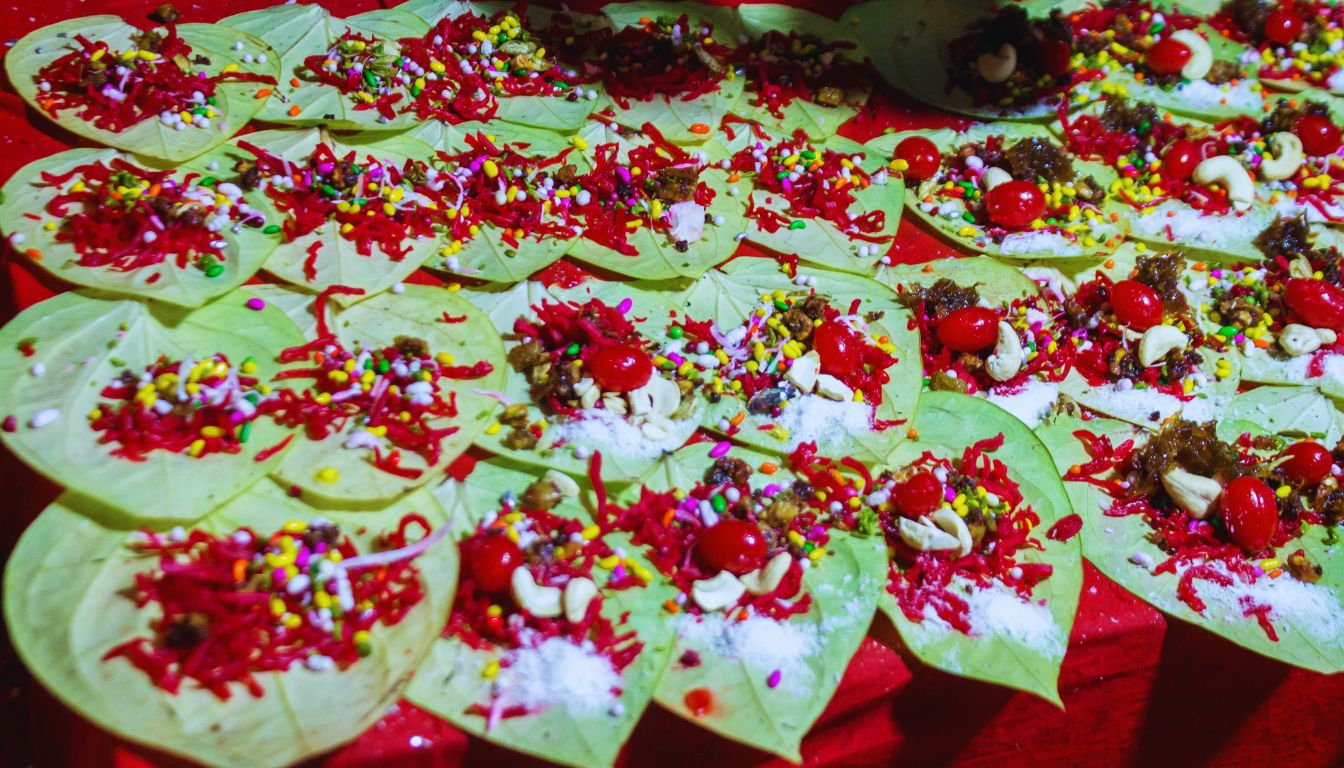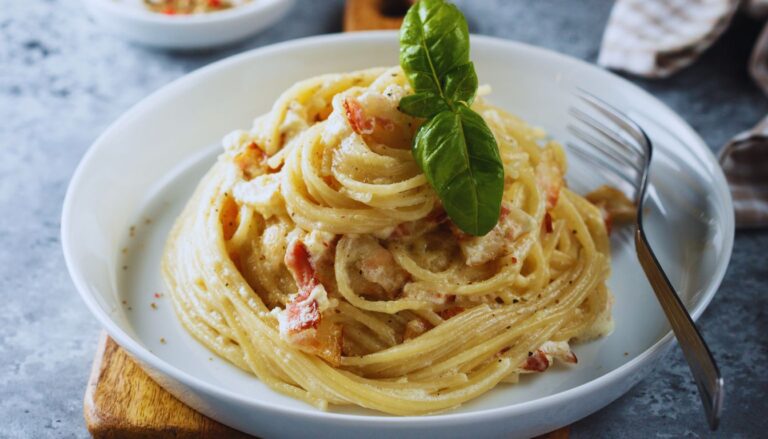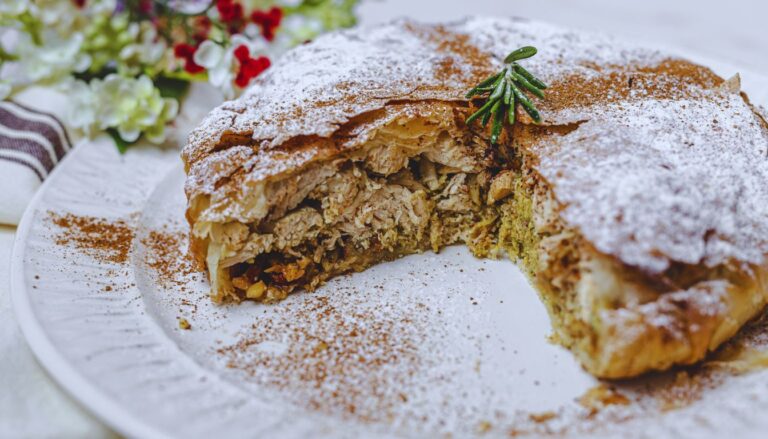Banarasi Paan, Varanasi India
In the narrow, winding lanes of Varanasi, where ancient temples cast long shadows across the Ganges, a unique culinary tradition thrives in countless small shops: the art of Banarasi Paan. This beloved betel leaf preparation is more than just a mouth freshener—it’s a cultural symbol, a social custom, and an integral part of Varanasi’s spiritual fabric. Each carefully crafted paan tells a story of tradition, craftsmanship, and centuries of cultural refinement.
Table of Contents
Historical and Cultural Significance
Banarasi Paan holds deep roots in Indian culture, dating back over 5,000 years. Mentioned in ancient Sanskrit texts, paan was considered a divine offering to deities and a symbol of hospitality. Varanasi, being one of the world’s oldest living cities, elevated this humble betel leaf preparation into an art form.
The cultural importance of Banarasi Paan is reflected in various aspects:
- Traditional welcome offering for honored guests
- Essential element in Indian weddings and celebrations
- Mentioned in classical literature and poetry
- Symbol of Varanasi’s refined cultural heritage
- Part of daily life for many locals
Its significance extends beyond mere consumption—it’s a social catalyst, bringing people together and facilitating conversations across all social strata.
Ingredients and Preparation
The excellence of Banarasi Paan lies in its intricate preparation and quality ingredients:
Essential Components:
- Betel leaf (Paan ka Patta) – specifically the Magahi variety
- Slaked lime (Chuna)
- Areca nut (Supari)
- Catechu (Kattha)
- Cardamom (Elaichi)
- Rose petal preserve (Gulkand)
- Fennel seeds (Saunf)
- Coconut shavings
- Various dried fruits
Special Banarasi Additions:
- Silver warq (edible silver foil)
- Saffron-flavored ingredients
- Local aromatic spices
- Special sweet essences
The preparation is a carefully choreographed process:
- Selection of the perfect betel leaf
- Careful cleaning and preparation of the leaf
- Application of lime in precise amounts
- Strategic placement of ingredients
- Artistic folding into specific shapes
- Final garnishing with silver warq
Where to Try It
Varanasi offers numerous authentic establishments to experience Banarasi Paan:
Historic Paan Shops:
- Keshav Tambacu Bhandar – Operating since 1860
- Ram Bhandar – Famous for traditional preparations
- Netram Ki Dukan – Known for unique varieties
- Maniram Paan Bhandar – A local institution
Popular Areas for Paan Shops:
- Godowlia Market
- Vishwanath Gali
- Thatheri Bazaar
- Dashashwamedh Ghat area
Eating Etiquette and Customs
Understanding paan etiquette enhances the cultural experience:
Traditional Customs:
- Accept paan with your right hand
- Consume it in a few bites, not all at once
- Never spit in public places
- Express appreciation to the paan maker (panwadi)
Social Aspects:
- Paan shops are traditional meeting points
- Evening consumption is most common
- Different varieties for different occasions
- Respect the panwadi’s craft and expertise
Seasonal Considerations
Banarasi Paan experiences vary with seasons:
Summer (March-June):
- Cooling varieties are popular
- Fresh ingredients are used
- Lighter preparations preferred
- Evening consumption increases
Monsoon (July-September):
- Special care in leaf selection
- Warm spices added
- Limited availability of some ingredients
- Indoor seating preferred
Winter (October-February):
- Warming ingredients added
- Heavier preparations common
- Special winter varieties available
- Peak tourism season
Modern Interpretations
While maintaining tradition, some innovations have emerged:
Contemporary Variations:
- Chocolate-flavored paan
- Ice paan
- Fire paan
- Sugar-free options
Note: Traditional panwadis still prefer classical preparation methods.
Practical Information and Travel Tips
Maximize your Banarasi Paan experience:
Best Times to Visit:
- Evening hours (6 PM – 10 PM)
- After meals
- During festivals
- Winter months for optimal experience
Price Guide:
- Traditional paan: ₹20-50
- Special varieties: ₹50-150
- Premium preparations: ₹150-300
Important Considerations:
- Carry small bills
- Most shops are cash-only
- Ask locals for recommendations
- Start with milder varieties
Health and Safety:
- Choose hygienic establishments
- Watch preparation process
- Inform about allergies
- Start with sweet paan for beginners
Making Your Banarasi Paan Journey Memorable
Let each paan be a gateway to understanding Varanasi’s rich cultural tapestry. Take time to observe the skilled hands of the panwadi, appreciate the artistic presentation, and embrace this centuries-old tradition. Remember, you’re not just tasting a culinary creation—you’re participating in a living heritage that connects you to one of humanity’s oldest cities.













